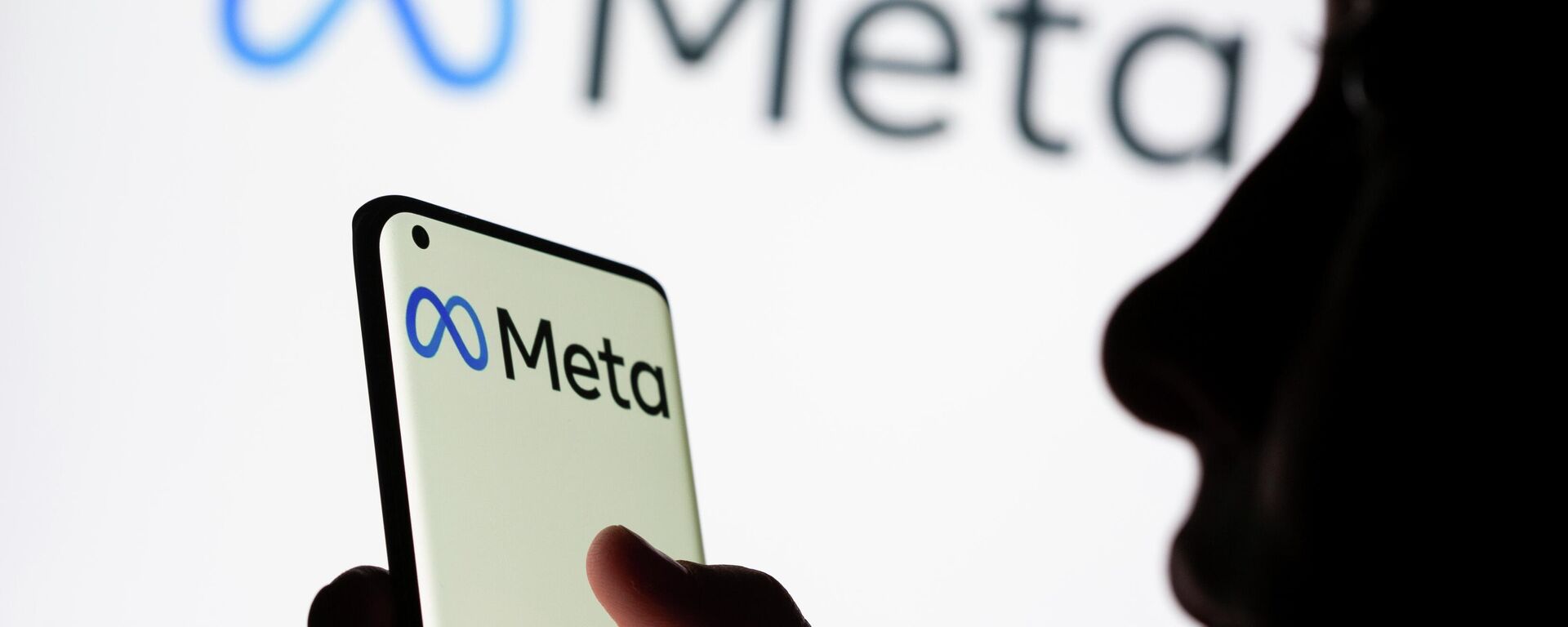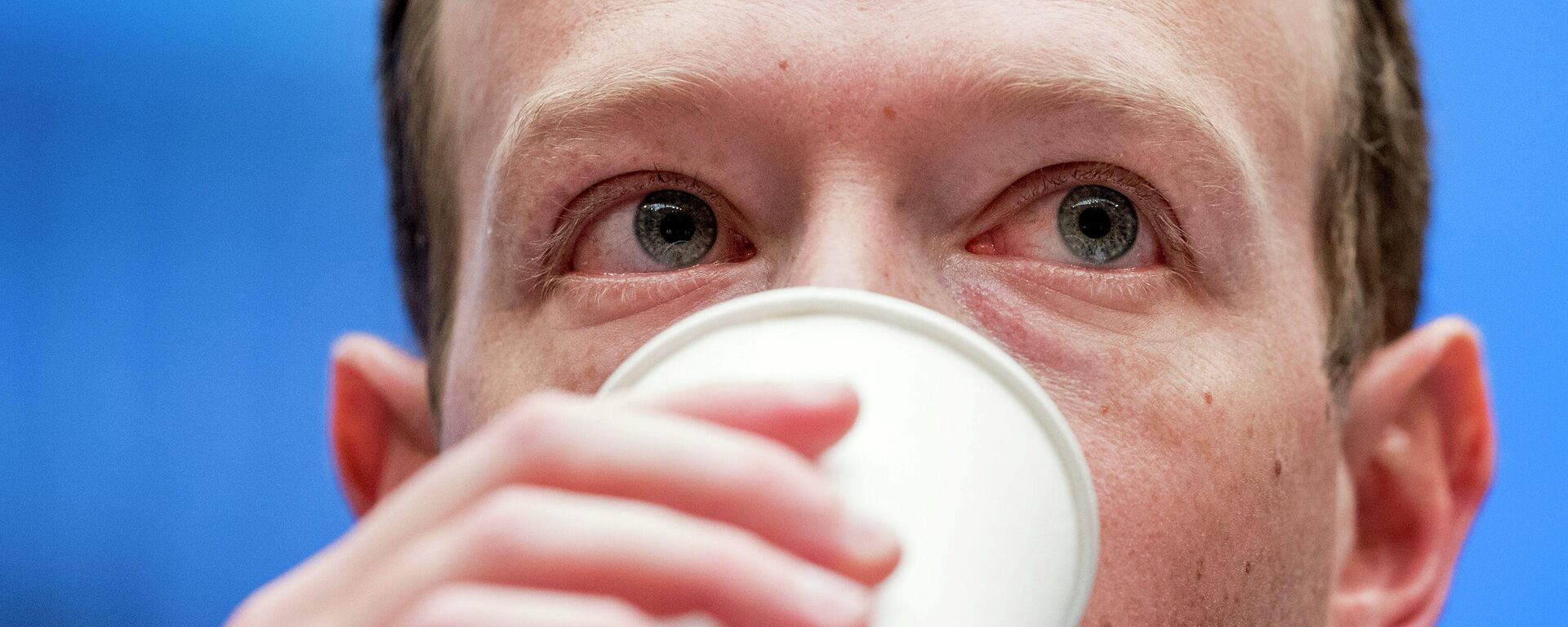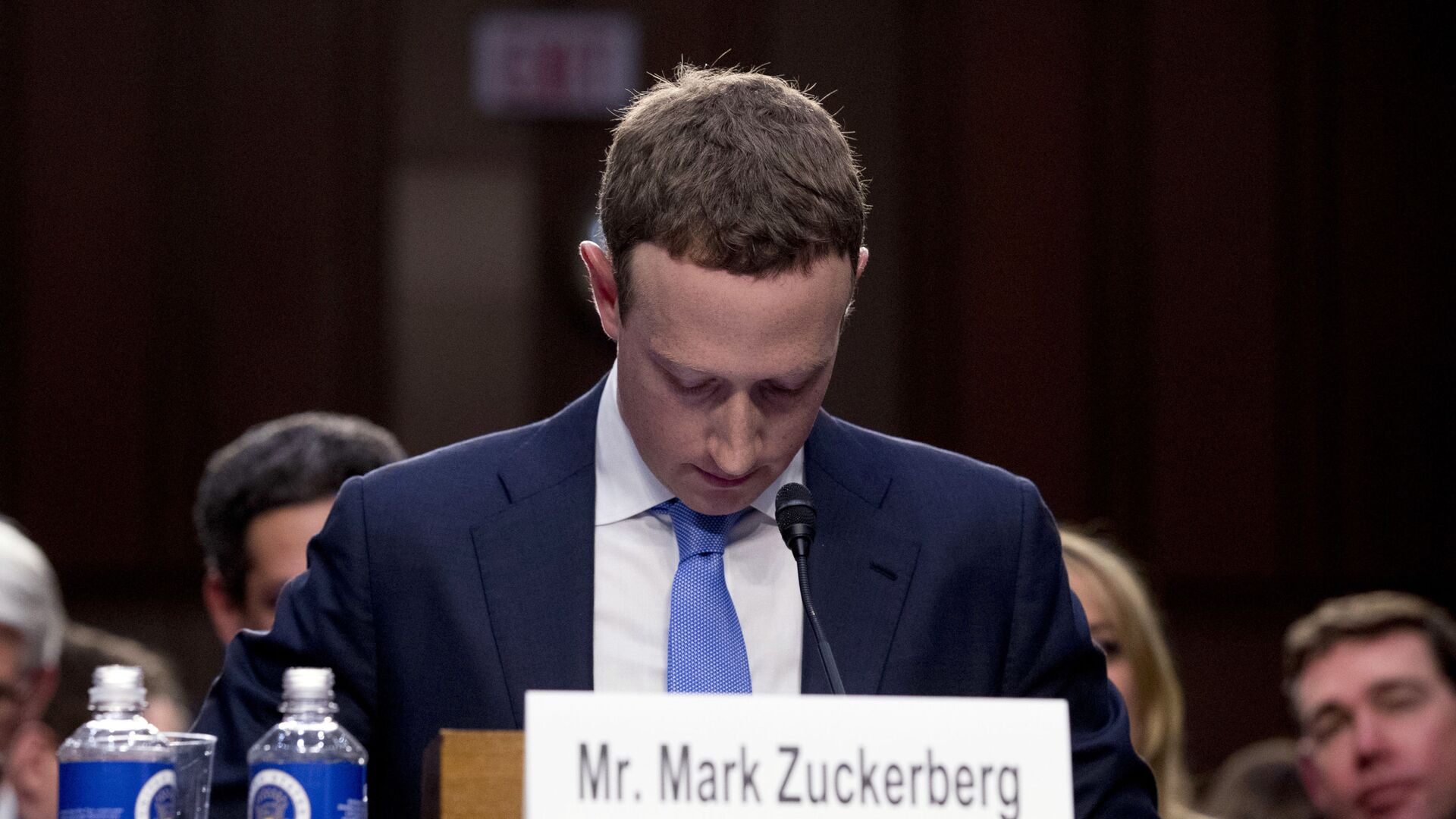https://sputnikglobe.com/20220206/zuckerberg-may-end-up-in-jail-if-facebook-fails-to-comply-with-online-safety-bill-uk-secretary-says-1092795787.html
Zuckerberg May End Up in Jail If Facebook Fails to Comply With Online Safety Bill, UK Secretary Says
Zuckerberg May End Up in Jail If Facebook Fails to Comply With Online Safety Bill, UK Secretary Says
Sputnik International
The UK's Online Safety Bill, expected to be introduced in parliament in the next few months, aims to force internet platforms to crack down on illegal content... 06.02.2022, Sputnik International
2022-02-06T10:06+0000
2022-02-06T10:06+0000
2023-05-28T15:18+0000
bill
nadine dorries
mark zuckerberg
prison
users
offensive
facebook
united kingdom (uk)
https://cdn1.img.sputnikglobe.com/img/07e5/07/08/1083340996_0:0:3071:1728_1920x0_80_0_0_89babefa46cf25c479f8936ce64205b6.jpg
British Secretary for Digital, Culture, Media, and Sport Nadine Dorries has warned that Facebook CEO Mark Zuckerberg could end up in prison if the company, which is now known as Meta, fails to comply with new online safety legislation.Andy Burrows, head of child safety online policy at the National Society for the Prevention of Cruelty to Children (NSPCC), a British child protection charity, however, remained downbeat on Dorries' pledge.Burrows insisted that unless the Online Safety Bill is "strengthened sufficiently, criminal sanctions offer bark but no bite".According to him, "children need well-designed regulation that learns lessons from other sectors if the bill is to match the rhetoric and prevent inherently avoidable abuse".UK Gov't Updates Online Safety Bill The remarks come a few days after the government boosted the bill with the addition of a number of new criminal offences which could result in jail sentences for high-ranking executives of internet platforms.The list of priority offences currently includes revenge porn, hate crimes, fraud, the sale of illegal drugs or weapons, the promotion or facilitation of suicide, as well as people smuggling and sexual exploitation. Under the Online Safety Bill, any material containing the aforementioned offences must be removed from social platforms and steps taken to stop users encountering it.As for the just-added offences, they pertain to posting messages that convey a threat of serious harm, sending a communication with the goal of causing psychological harm or serious emotional distress, and deliberately sending a false message with the intention of causing harm.She expressed hope that the bill would be a "notice to the online platforms to say here it is, we're letting you know what it is now, so start doing what you need to do".The culture minister was echoed by Damian Collins, the Conservative chair of a joint committee of MPs and peers that scrutinised the bill, who described the changes as something that would "give social media businesses more clarity on what's expected of them, and users more certainty that they will be protected, especially children".The online safety legislation obliging social media companies to shield their users from harmful content became a hot topic following the murder of Conservative MP David Amess on 15 October 2021. The suspected killer, Ali Harbi Ali, was charged with murder and accused of plotting terrorist attacks. Amid the aftermath of the Tory lawmaker's killing, Labour leader Keir Starmer pointed the finger at social media platforms, arguing they "are failing to crack down on extremism" and calling for "tough sanctions".Facebook and its family of apps, including Instagram, were earlier bashed for failing to do enough to prevent content that promoted "hate and division" or created a toxic environment for their young users, especially teenage girls. Meta was recently sued for £2.3 billion ($3.1 billion) due to claims that at least 44 million Facebook users in Britain had their personal data exploited after signing up to the social networking giant.
https://sputnikglobe.com/20211121/meta-delays-deployment-of-end-to-end-encryption-feature-on-facebook-instagram-amid-criticism-1090907781.html
https://sputnikglobe.com/20211229/no-remorse-zuckerberg-told-staffers-not-to-apologize-for-issues-related-to-facebook-papers---report-1091896867.html
united kingdom (uk)
Sputnik International
feedback@sputniknews.com
+74956456601
MIA „Rossiya Segodnya“
2022
Oleg Burunov
https://cdn1.img.sputnikglobe.com/img/07e4/09/0b/1080424846_0:0:2048:2048_100x100_80_0_0_3d7b461f8a98586fa3fe739930816aea.jpg
Oleg Burunov
https://cdn1.img.sputnikglobe.com/img/07e4/09/0b/1080424846_0:0:2048:2048_100x100_80_0_0_3d7b461f8a98586fa3fe739930816aea.jpg
News
en_EN
Sputnik International
feedback@sputniknews.com
+74956456601
MIA „Rossiya Segodnya“
Sputnik International
feedback@sputniknews.com
+74956456601
MIA „Rossiya Segodnya“
Oleg Burunov
https://cdn1.img.sputnikglobe.com/img/07e4/09/0b/1080424846_0:0:2048:2048_100x100_80_0_0_3d7b461f8a98586fa3fe739930816aea.jpg
bill, nadine dorries, mark zuckerberg, prison, users, offensive, facebook, united kingdom (uk)
bill, nadine dorries, mark zuckerberg, prison, users, offensive, facebook, united kingdom (uk)
Zuckerberg May End Up in Jail If Facebook Fails to Comply With Online Safety Bill, UK Secretary Says
10:06 GMT 06.02.2022 (Updated: 15:18 GMT 28.05.2023) The UK's Online Safety Bill, expected to be introduced in parliament in the next few months, aims to force internet platforms to crack down on illegal content and protect users from internet harm.
British Secretary for Digital, Culture, Media, and Sport Nadine Dorries has warned that Facebook CEO
Mark Zuckerberg could end up in prison if the company, which is now known as Meta, fails to comply with new online safety legislation.
"Absolutely", Dorries said when asked in an interview with Times Radio whether senior executives, such as Zuckerberg, could find themselves behind bars if they don't act to protect users from internet harm in sync with the Online Safety Bill, slated to be introduced in parliament over the next few months.
Andy Burrows, head of child safety online policy at the National Society for the Prevention of Cruelty to Children (NSPCC), a British child protection charity, however, remained downbeat on Dorries' pledge.

21 November 2021, 19:38 GMT
He claimed that "despite the rhetoric, the government's current proposals mean tech bosses wouldn't be personally liable for the harmful effects of their algorithms or failing to prevent grooming, and could only be prosecuted for failing to supply information to the regulator".
Burrows insisted that unless the Online Safety Bill is "strengthened sufficiently, criminal sanctions offer bark but no bite".
According to him, "children need well-designed regulation that learns lessons from other sectors if the bill is to match the rhetoric and prevent inherently avoidable abuse".
UK Gov't Updates Online Safety Bill
The remarks come a few days after the government boosted the bill with the addition of a number of new criminal offences which could result in jail sentences for high-ranking executives of internet platforms.
The list of priority offences currently includes revenge porn, hate crimes, fraud, the sale of illegal drugs or weapons, the promotion or facilitation of suicide, as well as people smuggling and sexual exploitation. Under the Online Safety Bill, any material containing the aforementioned offences must be removed from social platforms and steps taken to stop users encountering it.
As for the just-added offences, they pertain to posting messages that convey a threat of serious harm, sending a communication with the goal of causing psychological harm or serious emotional distress, and deliberately sending a false message with the intention of causing harm.
Dorries, for her part, explained that ministers were "listening to MPs, charities, and campaigners who have wanted us to strengthen the legislation", adding that the changes "mean we [the government] will be able to bring the full weight of the law against those who use the internet as a weapon to ruin people's lives and do so quicker and more effectively".
She expressed hope that the bill would be a "notice to the online platforms to say here it is, we're letting you know what it is now, so start doing what you need to do".
The culture minister was echoed by Damian Collins, the Conservative chair of a joint committee of MPs and peers that scrutinised the bill, who described the changes as something that would "give social media businesses more clarity on what's expected of them, and users more certainty that they will be protected, especially children".

29 December 2021, 23:46 GMT
The online safety legislation obliging social media companies to shield their users from harmful content became a hot topic following the murder of Conservative MP David Amess on 15 October 2021. The suspected killer, Ali Harbi Ali, was charged with murder and accused of plotting terrorist attacks. Amid the aftermath of the Tory lawmaker's killing, Labour leader Keir Starmer pointed the finger at social media platforms, arguing they "are failing to crack down on extremism" and calling for "tough sanctions".
Facebook and its family of apps, including Instagram, were earlier bashed for failing to do enough to prevent content that promoted "hate and division" or created a toxic environment for their young users, especially teenage girls. Meta was recently sued for £2.3 billion ($3.1 billion) due to claims that at least 44 million Facebook users in Britain had their personal data exploited after signing up to the social networking giant.




